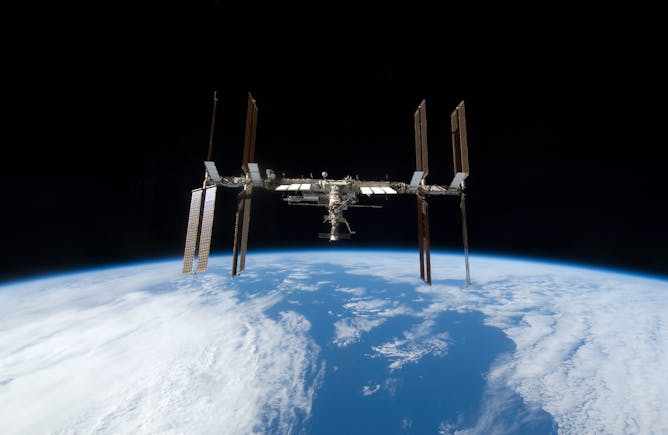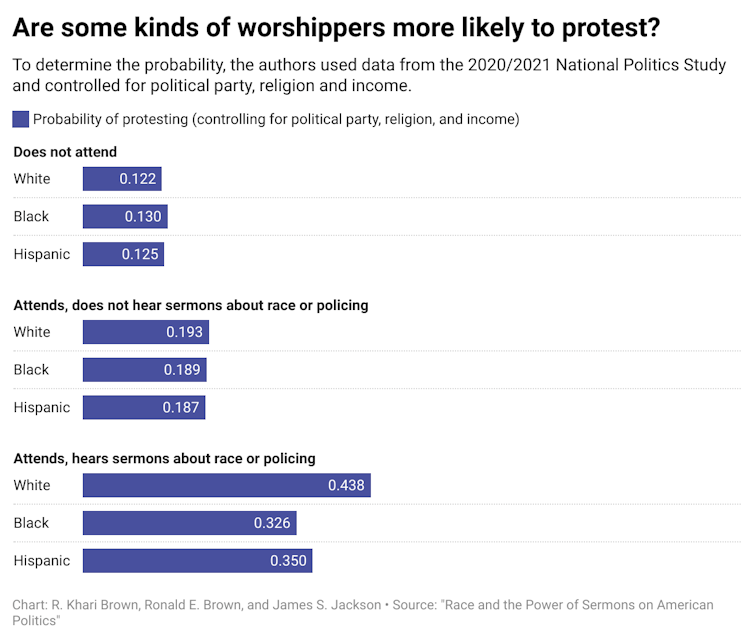|
|
|
|
The space race that began between the U.S. and the Soviet Union after the end of World War II was a scary time for many people. But in a way, the fact that tensions on the ground between the two spacefaring nations never turned from cold to hot may have set a precedent for how countries used space: peacefully.
The Outer Space Treaty of 1967 currently governs all activities in space. But for all its strengths, the treaty leaves a lot of wiggle room within which international conflict – potentially military conflict – could break out, write Michelle L.D. Hanlon and Greg Autry, two experts in space law and policy. This is why it was a big deal when, on Nov. 1, 2021, the United Nations voted to start the process of updating the laws governing space.
And not a moment too soon. Two weeks later, Russia tested a new anti-satellite missile, destroying one of its old satellites and creating a dangerous cloud of debris. It was a reminder that peace in orbit is tenuous, illustrating why the world needs new space law, the scholars explain.
Also today:
And one last note today: We’re pleased to announce that we are launching an ambitious diversity initiative to ensure experts in the American media look more like the American population. The plan is supported by 41 of our member colleges and universities, as well as the Burroughs Wellcome Fund, Howard Hughes Medical Institute and the Lumina Foundation. We’ll be letting you know more about this in the coming months, but you can download the press release to learn
more.
|

|
Daniel Merino
Assistant Science Editor & Co-Host of The Conversation Weekly Podcast
|
|

The International Space Station is a great example of how space has, for the most part, been a peaceful and collaborative international arena.
NASA Marshall Spaceflight Center/Flickr
Michelle L.D. Hanlon, University of Mississippi; Greg Autry, Arizona State University
Human activities in space today are far more numerous and complicated compared with 1967. Two experts explain the need for better laws to keep space peaceful.
|
Politics + Society
|
-
Mia Bloom, Georgia State University
At least five people were killed and many more were injured after an SUV crashed into a Christmas parade. A terrorism expert explains how vehicles have been weaponized.
-
Morgan Marietta, University of Massachusetts Lowell
The upcoming debate at the Supreme Court is less about the existence of the right to abortion and more about how that right is limited by the emerging personhood of a fetus.
|
|
Ethics + Religion
|
-
Aaron Sachs, Cornell University
Melville’s epic novel about life aboard a wayward whaling ship holds lessons for the climate crisis today.
|
|
Health
|
-
Janet J. Boseovski, University of North Carolina – Greensboro
For many, the pandemic has disrupted daily habits around eating and fitness – which makes it a prime time to shake up old assumptions about achieving an ideal body.
|
|
Science + Technology
|
-
Ashley Reeves, University of Tennessee
There are so few wild ocelots in the US that the cats are becoming inbred, with a bad prognosis for their ultimate survival. But researchers are perfecting ways to get new genes into the population.
-
Chris Curran, Northern Kentucky University
Scientists have been using art to illuminate and share their research with the public for centuries. And art could be one way to bolster K-12 science education and scientific literacy in the public.
|
|
Environment + Energy
|
-
June Sekera, The New School; Neva Goodwin, Tufts University
Most carbon dioxide captured in the U.S. today is used to extract more oil. Two scholars point to another way: biological sequestration.
-
Matthew E. Kahn, USC Dornsife College of Letters, Arts and Sciences
Private companies rate all kinds of investments, from stocks to used cars. Now, they’re starting to analyze climate risks to local real estate – but how reliable are their findings?
|
|
Education
|
-
Jay Stratte Plasman, The Ohio State University
Students from low-income backgrounds fare better when they are able to take career and technical classes in STEM, new research shows.
|
|
From our International Editions
|
-
Shih-Wen Sue Chen, Deakin University; Sin Wen Lau
New school textbooks in China focus less on the Chinese Communist Party and more on its figurehead Xi Jinping. The growing cultivation of a personality cult is reminiscent of the days of Mao Zedong.
-
Arjan Stegeman, Utrecht University
Each year in spring and summer, waterbirds mingle on their breeding grounds in Siberia and mix their flu viruses, creating new variants they then bring to Europe, Asia and Africa.
-
William Sanders, University of Michigan
The anatomy of the teeth in the cranium and its bones show that it belongs to an extinct cousin of the living African savanna and forest elephants.
Today’s graphic

From the story, What Americans hear about social justice at church – and what they do about it
|
|
| |
| |
| |
| |

|
| |
| |
| |
| |
| |
| |
|
|
|
|
|
|
|